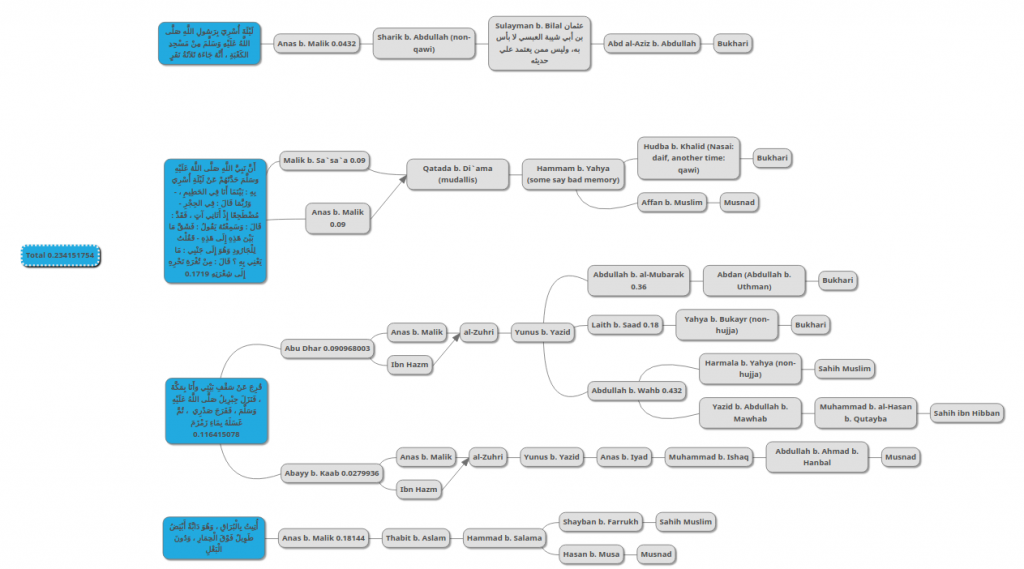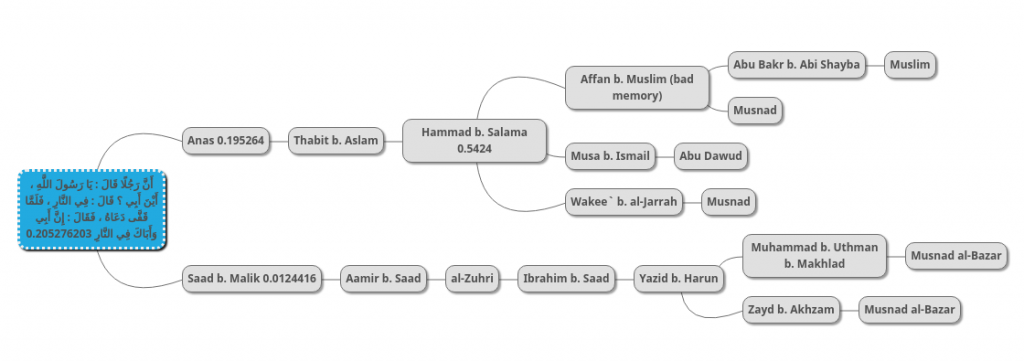A famous part of the Prophet’s Night Journey PBUH is the story of God making 50 daily prayers obligatory on Muslims. Below is an excerpt from a hadith from Sahih al-Bukhari that mentions this:
Among the things which Allah revealed to him then, was: "Fifty prayers were enjoined on his followers in a day and a night." Then the Prophet (ﷺ) descended till he met Moses, and then Moses stopped him and asked, "O Muhammad ! What did your Lord en join upon you?" The Prophet (ﷺ) replied," He enjoined upon me to perform fifty prayers in a day and a night." Moses said, "Your followers cannot do that; Go back so that your Lord may reduce it for you and for them."
Sahih al-Bukhari 7517
There are many strange aspects to this story: The idea that God prescribed 50 daily prayers, the idea that Prophet Muhammad PBUH did not complain, the idea that Prophet Moses had to speak up on behalf of the Muslims and lecture Prophet Muhammad on the number of daily prayers humans can handle, and the idea of the Prophet PBUH going back and forth between God and Moses to adjust the number of the prayers.
I decided to do a study of all existing chains of all hadiths that mention this “50 daily prayers” theme in order to find out just how strong their chains are. Below is a diagram of the result:

I used probabilistic hadith verification to calculate the strength of the chains. This method uses probability theory to bring out the hidden weaknesses in chains of transmitters. The result was as I expected: the hadiths all have very low-quality chains of transmitters. None of them reach the 30% probability of authenticity that is necessary for judging a hadith ṣaḥīḥ (“authentic”) using this method. In fact none of them even reach 20%:
- First hadith: 4%
- Second hadith: 17.9%
- Third hadith: 11.64%
- Fourth hadith: 18.14%
The first hadith is so low-quality that it is actually undeserving of being in Sahih al-Bukhari (where it is found).
We can take a final step to combine all of these hadiths’ probabilities together. The result is 27.95% probability of authenticity. (See the linked essay for the details of how these calculations are done).
The verdict is that the supporting hadiths for the story are not strong enough for us to consider it proven that it happened. Therefore skeptical Muslims who find the story strange have the right to be skeptical about it, but I recommend that we keep open minds about it since there is still sufficient support for it that we cannot say with certainty that it is fabricated. (I understand that folks who like to see things in simple black and white terms will find this discussion rather useless, but the science of hadith is all about probabilities, not certainties, and it is important to remember this fact.)
